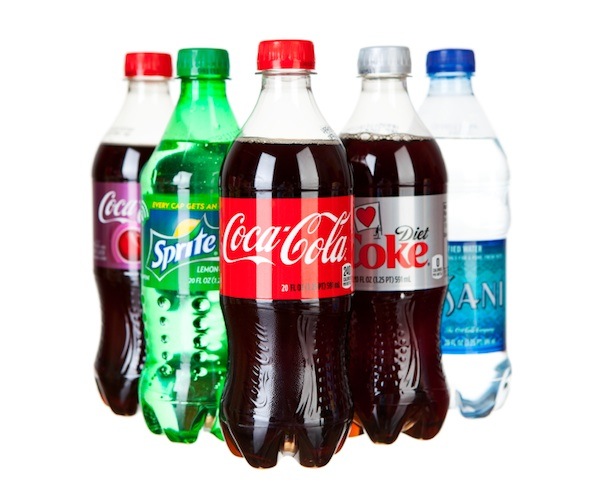There’s a new cola war going on, but it’s a little more serious than the old Pepsi vs. Coke feud of decades past. Obesity is out of control, stretching our already stretched-thin health care system, and sugar consumption is center stage.
So, what do you do when you are the purveyor of some of the biggest selling, empty-calorie, sugar-laden drinks in our country’s history? Well, you play damage control, of course.
 “We have not done a good enough job in telling our story and being consistent in telling our story,” said Coca-Cola spokeswoman Diana Garza Ciarlante.
“We have not done a good enough job in telling our story and being consistent in telling our story,” said Coca-Cola spokeswoman Diana Garza Ciarlante.
Right, the problem is that people don’t know what Coca-Cola is really all about. In reality, we’re talking about a propaganda war. Try to soften the blow of bad publicity, then draw more attention to your diet soda by signing a major celebrity spokeswoman — Taylor Swift announced her partnership pitching Diet Coke last Sunday:
But back to damage control. Coke decided to take on obesity directly, with their “Coming Together” campaign, pointing out that of their 650 beverages, they offer 180 low- or no-calorie drinks.
Translation: Hey, we know there’s an obesity problem in our country, but don’t blame us, it’s only 73 percent of our products that are horrible and have no redeeming nutritional value.
Last week, shots were fired from both sides (well, tweets) during the #ABCdrBchat Twitter chat with ABC News Chief Medical Editor Dr. Richard Besser (hosted each Tuesday at 1p EST). Website links were shared to campaign sites for both the beverage industry and The Center for Science in the Public Interest (a group that the cola companies aren’t very fond of).
During the Twitter chat, The American Beverage Association posted this:
.@abcdrbchat Check out how we’re empowering consumers to make the choices that are right for them deliveringchoices.org #ABCDrBChat
— AmeriBev (@AmeriBev) January 22, 2024
The website’s theme is about playing up the choices the beverage industry offers and how calories-per-drink are down on average when factoring in all of their newer beverages. It’s a bit like a crack dealer saying, “Look, I used to exclusively deal crack, but now I offer my customers a little weed and cigarettes, too. So hey, the percentage of crack I deal is lower than it used to be.”
I know the analogy is over top, but the basic logical parallels are there. Even if a few of your products bring down the average calorie count, that’s simply a distraction from the fact that you are in the business of selling junk food that plays a major role in the obesity epidemic.
During the Twitter discussion, Dr. Besser posted, “Coke hates this,” and included a link to the TheRealBears.org, a campaign by The Center for Science in the Public Interest. What starts out as a light-hearted spoof of the famous polar bear Coke ad campaign ends with a diabetes-related amputation and loads of damning statistics. It’s particularly stinging when they quote beverage industry execs in a “lie” box next to a “truth” box with scientific research countering industry propaganda. Though, statements like “there is no evidence that connects sugary beverages to obesity” from Coca-Cola executive Katie Bayne aren’t very difficult to shoot holes through.
Between the New York City soda ban and the removal of soda from schools, there’s a full on assault on sugary drinks taking place. The debate is not simple. In fact, it’s very easy to be on either side at any given moment. While most reasonable people don’t want the government telling us what to eat or drink, if you think “do nothing” is the best option, you’re ignoring the collision course we’re on with the oncoming train that is unsustainable obesity-related health care costs.
Also Read:
Soda vs. Marijuana: Which is Worse?
Why You Should Never Buy Girl Scout Cookies
Diet Pepsi’s New Sweetener is Still No Reason to Drink It
